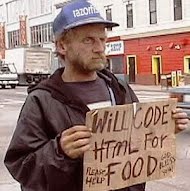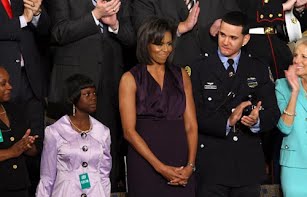Media parties and the vodka fizz

A lot of what New York Times reporter David Carr says in this interview about the state of the media is so true it's kind of sad. I saw some of the extravagance he mentions in my first amazing journalism gig in New York (at a magazine which has, incidentally, since folded.) I remember consciously trying to savor every fancy dinner, town car and nice hotel room, since for me, an entry-level 20-year-old, it all didn't really make sense.
But even when you know deep down that something is too good to be true, it's still upsetting when the inevitable end comes. It's starting to set in that the past 15 years have been an unsustainable anomaly for not just finance, but a lot of other industries too.
A particularly relevant excerpt of Carr's real talk:
"I think one thing that people do not understand is, as recently as four or five years ago, to be a member of Manhattan media, you weren't rich, but you lived as a rich person might. You went to the parties that a rich person would go to, you ate the food that a rich person would eat, you drank the vodka that a rich person would drink, and you'd end up in black cars, and you'd end up sometimes on boats and in helicopters.
"We lived as kings, and it convinced us, I think, that there was a significant underlying value to what we did. And I think we're finding out now that the real, actual value of journalism in the current economy is not that high."
Let them eat Tweets

I thought Liz Smith was on to something when I blogged back in March about her prediction that "We're going to have the Internet even when we don't have things to eat." But who knew than an off-hand comment from an octogenarian New Yorker would come to bear so quickly right here in San Francisco?
This past weekend's Wall Street Journal reported on the growing number of homeless people with Facebook pages, Twitter accounts, and email addresses. According to the paper, "In America today, even people without street addresses feel compelled to have Internet addresses."
It seems absurd at first, but is it really?
Think about the increasing numbers of people who devote hours to networking on LinkedIn while unemployed. Or those of us who can easily go weeks without speaking to family and longtime friends, but regularly spend hours keeping up with strangers' blogs or "interacting" with Facebook friends and Twitter followers-- many of whom we've only met in real life once or twice. Are we all really any different than the homeless people staking their claims on the Web?
I know the Internet can be exciting and beneficial-- I mean, I'm here, aren't I?-- but I try to be wary of the allure of "social media" and its rapid rise in popularity. There's something of the placebo effect in it all-- and I think it's important to be vigilant about what we're neglecting or sacrificing in the real world as we're busy cultivating our online "lives."
Real talk from Michelle Obama

Last week Time Magazine had a great interview with Michelle Obama. It's fun to read because it seems like Time just published the transcription straight from the tape recorder (the "likes," "I means" and "you knows" are still included in the final copy) and Michelle comes across as sharp, honest and open-- not like she's been media-trained within an inch of her life.
My favorite part was her response to a question about the criticism of a dress* she wore to a congressional speech. Of all things, I know, deep thoughts on clothing! But her attitude can be applied beyond fashion-- and I think it's a very relevant message, particularly for women, who often go along with a flow set by someone else rather than proactively make their own choices:
"In life you've got to make choices that make sense for you, because there's always going to be somebody who'll think you should do something differently. So you might as well start with what you like and what you care about, what your passions are, what makes sense.
That's my message to women, if anything, over the course of this, is, find your space. Find your spot. Wear what you love. Choose the careers that may have meaning to you, because there's always somebody who will say, 'I wouldn't have worn that color, or why didn't you work at that job.' But if you're comfortable in the choice and it resonates with you, then all that other stuff, it's just conversation. People have the right to have conversations.
But I think that's one thing we as women sometimes do; we don't make choices that have meaning to us. And then when those things fall apart, you have to have yourself to fall back on. You have to own the choices that you make, and hopefully they're yours to begin with."
*the picture above is the dress in question. The speech was in February in D.C., so people said it was a bit inappropriate for the First Lady to be bearing her arms given the time, place, and weather. Or something.
Journalism school "after newspapers"

I went to see a panel earlier this month entitled "What Comes After Newspapers?"
All in all, it was fantastic- you can see the entirety of it here or just read a fuller summary of it here.
After an evening full of really interesting talk about the currently tumultuous state of journalism, the panel opened up for questions from the crowd. Most of those questions ended up concerning some really specific things about the field or about local SF news media. Fortunately, I was able to squeeze in to ask the last question of the night, and I made it really general (you can see the video of me here):
What would the members of the panel say to a young person deciding whether or not to go to journalism school?
Although Phil Bronstein weighed in by saying, essentially, "I'd tell him/her to go for it," I think two things about the room's response suggests that many other journalism professionals would advise otherwise.
One is that everyone *cracked up* when I asked the question, even though I wasn't at all trying to play it for laughs.
The second is Bronstein's off-hand comment in the middle of his spiel about how UC Berkeley journalism grad students are doing local reporting as part of a joint program with the SF Chronicle: "Now, if we'll be able to pay you if you're one of those [reporters]... we'll have to see."
Call me old-fashioned, but: If there's no guarantee that a paying position will be available at the end of it all, why would anyone invest the money to train or intern in a certain professional field? It seems to me that the proponents for journalism school may have to start coming up with more convincing arguments, because I, for one, wouldn't buy it.